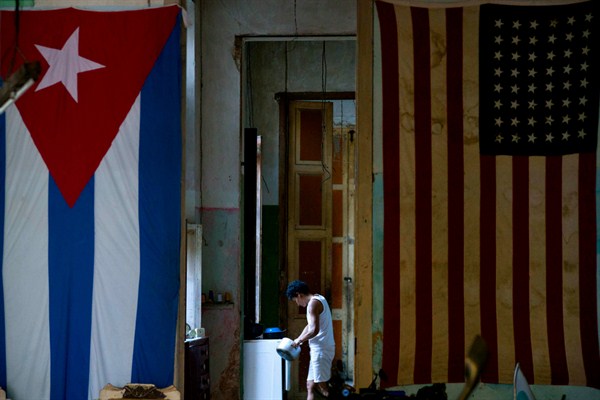Cuba was not a major issue in the 2016 presidential campaign, but U.S.-Cuban relations may be collateral damage of Donald Trump’s stunning upset victory. Trump’s campaign was never heavy on policy details, and over the months, he expressed contradictory views about President Barack Obama’s policy of engagement with Havana. At first, he supported the opening, though he said he would have gotten a better deal. Later, he seemed to embrace a more traditional Republican stance of hostility.
The language in the Republican Party’s platform was reminiscent of the darkest days of the Cold War. It denounced Obama’s policy as “a shameful accommodation to the demands of its tyrants,” and offered normal relations only “after [Cuba’s] corrupt rulers are forced from power and brought to account for their crimes against humanity.”
But the candidate himself was largely silent until late September, when Newsweek broke the story that in 1998, Trump secretly explored opening business operations in Cuba, in violation of the U.S. embargo, and then tried to disguise the illegal activity as a charitable project. In 1999, as Trump flirted with running for president in the 2000 election as the candidate of Ross Perot’s Reform Party, he delivered a fiery speech to Cuban Americans in Miami, denouncing Fidel Castro as “a killer” and pledging to maintain the embargo. Newsweek’s exposure of Trump’s hypocrisy fueled speculation that his unconsummated 1998 business proposition might cost him Cuban American votes in 2016. Shortly after, Trump pivoted, announcing via Twitter: “The people of Cuba have struggled too long. Will reverse Obama’s executive orders and concessions towards Cuba until freedoms are restored.”

